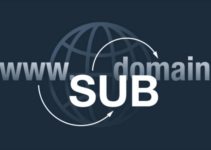Nearly all 20 of the largest school districts in the US will offer online learning possibilities this fall. In this article, I have shared “Online Schooling A Bad Idea That Wont Go Away”.
Compared to before the epidemic, more than half of them will offer more full-time online courses. A Chalkbeat study indicates that the trend is most likely to continue or get worse.
That is a challenge. The last two years’ worth of school closings have caused significant emotional and academic harm to American students.
Schools should focus on creative methods to fill classrooms, socialize kids, and spread the joy of collaborative learning rather than giving students the option to stay at home.

In which LMS platform should you invest your time and money? This review will tell you more about it
In the past, a number of forces have supported online education, not all of which have been intended to advance education.
Some students and families prefer online learning for a variety of reasons, including the search for more affordable, effective educational options, the attempt to lessen the influence of teachers’ unions by concentrating virtual teachers in non-union states, and a number of health and social concerns.
Some online courses since the pandemic have put medically fragile students under moderate stress. However, some people are rushing to employ online education to increase public school enrollments, which have decreased across several regions.
The prevalence of these programs in Los Angeles, Philadelphia, Dallas, and New York is especially alarming because they target disadvantaged and minority students who are likely to be disproportionately underserved by online school options.
Even if young pupils in particular are recovering from the academic slump of the pandemic era, a recent study found that the gap between high-poverty and low-poverty schools is still greater than it was before the epidemic.
Where research is available, it consistently shows that online schools produce worse academic achievements than traditional public schools.
Teachers in cyber schools are usually dispersed across several states and time zones, while most of the students’ work are completed online and at home.
The curricula, student-teacher ratios, the quantity of real teaching, and whether or not the schools provide academic help are all areas where there is a lack of specific information.
Lesson against online learning is the epidemic’s detrimental effects on kids’ emotional well-being and social skills—one-third of school administrators reported a rise in disruptive student behavior over the previous school year.

Graham Browne, the founder of Forte Preparatory Academy, observed a significant increase in “aggressive or threatening” behavior recently, particularly among sixth graders who had spent a significant portion of the preceding two years online. Queens, New York’s Forte Preparatory Academy is an independent charter school.
During a recent multi-day field trip to a camp hosted by the Fresh Air Fund, Browne observed youngsters yelling at one another during team-building activities such as figuring out how to carry a heavy object across a low bridge. Prior to this, he asserted, they would have devised a plan for moving the thing jointly.
Concerningly, nearly half of Browne’s top-performing eighth graders, who were studying algebra rather than pre-algebra, opted for the online alternative when the school provided it for the 2020–2021 school year since it allowed them to work at their own pace.
Due to the small size of the school, Browne noted, “having such a high percentage of high-achieving students absent has an impact on peer tutoring, student morale, and the school’s emphasis on team building.”
However, the most immediate threat is faced by for-profit virtual charter schools, which are notoriously of low quality and only 30 percent of which passed state school performance criteria, compared to 53 percent of district-run virtual schools prior to the pandemic.
During school lockdowns, when traditional schools found it difficult to provide online education, these institutions, which engage heavily in advertising, saw an increase in enrollment. In the past year, enrollment surged by 45 percent to 157,000 students at the largest for-profit network in the United States.
Children require the most opportunities for hands-on education and the opportunity to try new things. Moreover, given the ongoing spread of COVID-19 variants, schools must maintain reassuring safety protocols.
Now is the time for schools to implement engaging learning strategies, such as those used by a high-poverty school in the Bronx that uses the river as a science laboratory and by the Leander, Texas, school district, which tasked high school students with developing an anti-bullying strategy while simultaneously cultivating future leaders.
These assignments could be converted to a hybrid format by permitting students to complete a portion of them online while maintaining a heavy emphasis on in-person participation.
Contrary to basic educational theory is the rapid embrace of internet-based education. Experience has revealed its significant shortcomings. Insufficient state oversight prevents their occurrence.
Before proceeding, independent researchers should be compensated to fund and perform study to uncover any potential benefits. Schools should do everything possible to keep pupils in class until that time.

What if you could acquire the top LMS platform at a 50% discount? Click here to get discount coupons and save money
Quick Links:




